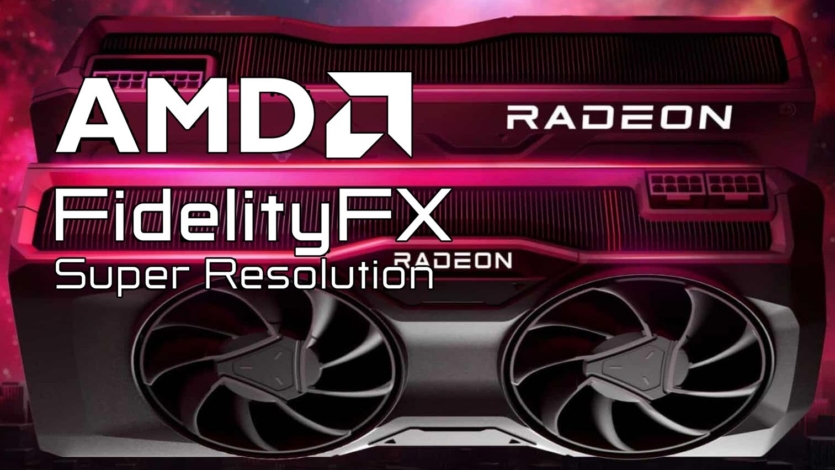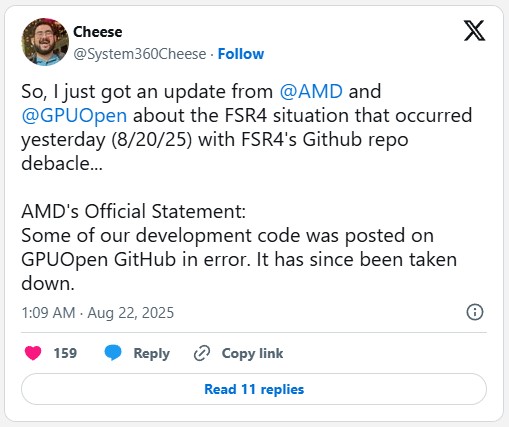
AMD has found itself in a difficult situation, not because of the actions of its competitors, but because of its own mistake. A few days ago, the company released the FidelityFX SDK 2.0, which includes FSR 4 technology. Immediately after the release, it turned out that the source code was accidentally added to the official repository in the public domain.
AMD reacted quickly and removed the repositories, but some of the related files remained available for several hours. Some of them are can still be found. Users have already created their own forks, and, as is often the case in such cases, the open source code cannot be reverted. The leaks mentioned a version of FSR 4 based on INT8 that looks unfinished, and it is unclear whether it was planned for real hardware or a remnant of previous experiments. At the same time, AMD confirmed that even before the launch of the RX 9000 series, it was studying support for the RDNA3 architecture, but did not give any guarantees.
The openness status of super-resolution technologies looks like this:
- AMD FSR: FSR1, FSR2, and FSR3 are open source; FSR4/Redstone has never been officially declared open-source.
- NVIDIA DLSS: DLSS1 through DLSS4 remain closed.
- Intel XeSS: the company promised to make the code open source, but never fulfilled its promise.
Since the leak, there has been a lot of discussion online about whether AMD should fully release FSR 4 as an open source product. The company has previously made previous generations of FSR open-source, and many expected the same from the new version.
The problem is that if a user downloaded files from a repository distributed under the MIT license, they automatically received the right to use, copy, and modify the code. Subsequent deletion of the files does not cancel the license already issued. In theory, open licenses cannot be revoked unless the user has violated the terms. The only exception is if the publisher did not have the rights to the code from the very beginning. In the case of FSR 4, this is not the case — the development belongs to AMD.
At the same time, the competition in the field of super-resolution and frame generation technologies is getting tougher, and AMD is unlikely to want to make life easier for its competitors. A logical step would be to make FSR 4 fully open after its successor is released. Another option is to repeat Intel’s approach: promise open-source, but don’t follow through.
It is worth noting that this text does not constitute legal advice. If you are planning to use FSR 4 in your own projects, you should seek professional advice from a lawyer.
Source: videocardz


Spelling error report
The following text will be sent to our editors: